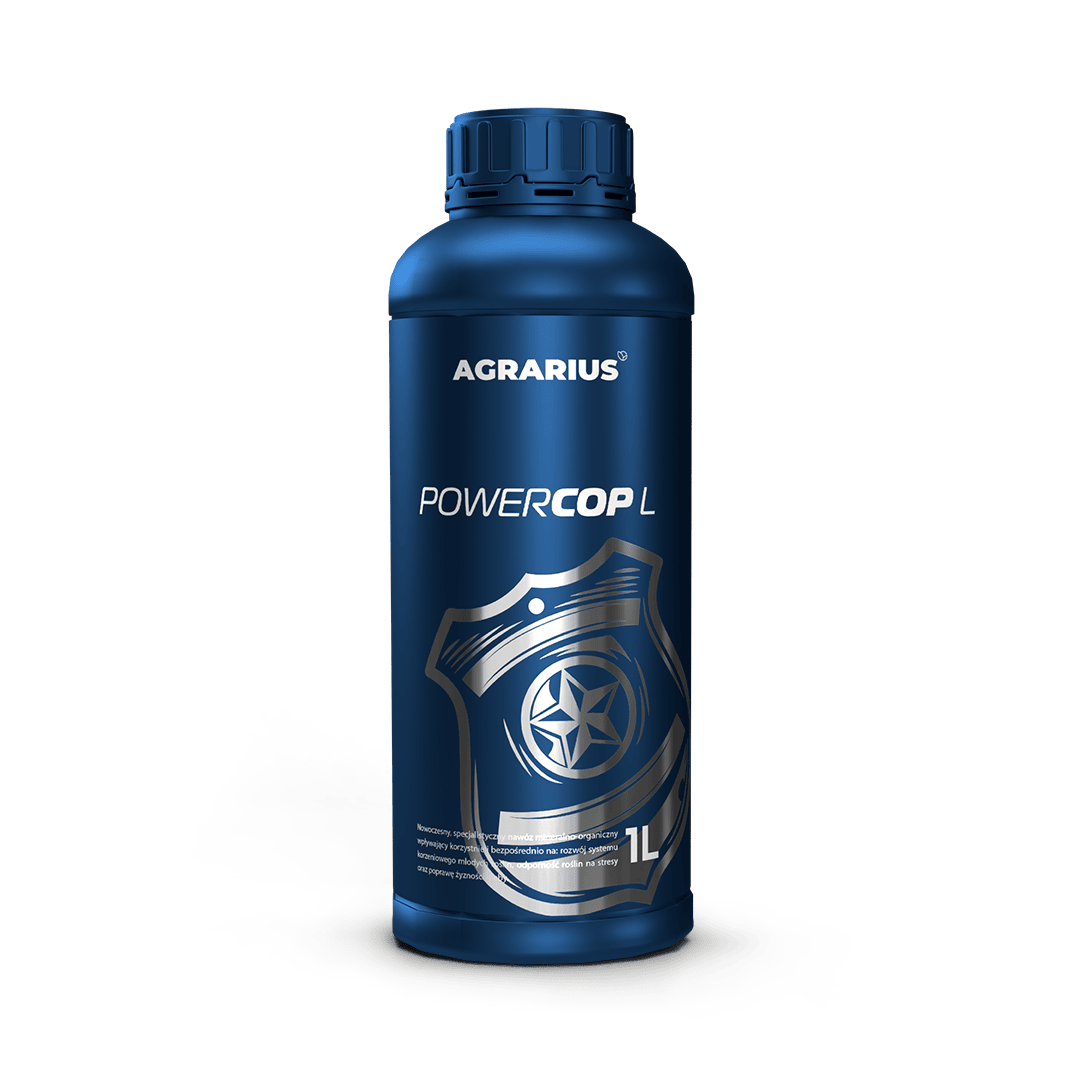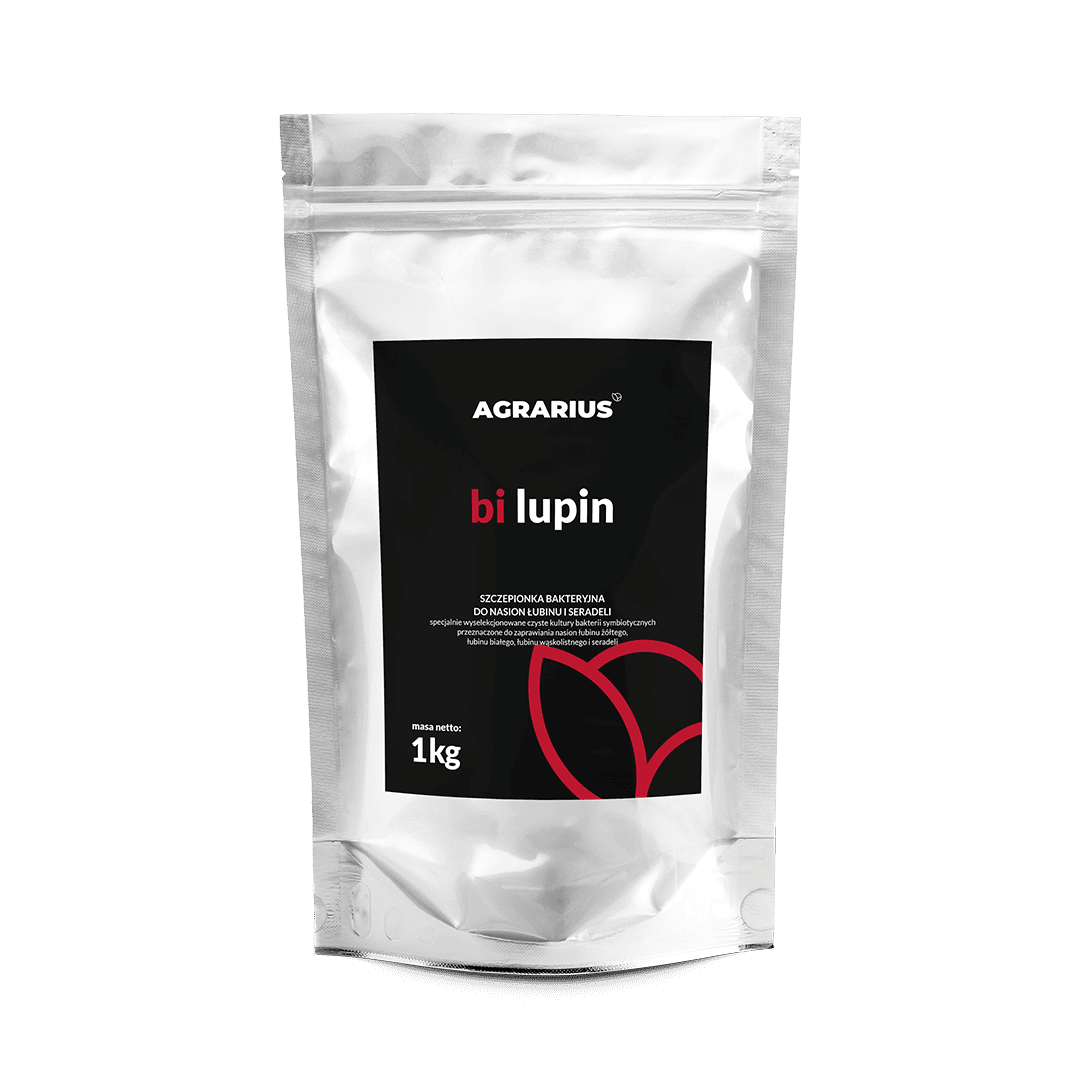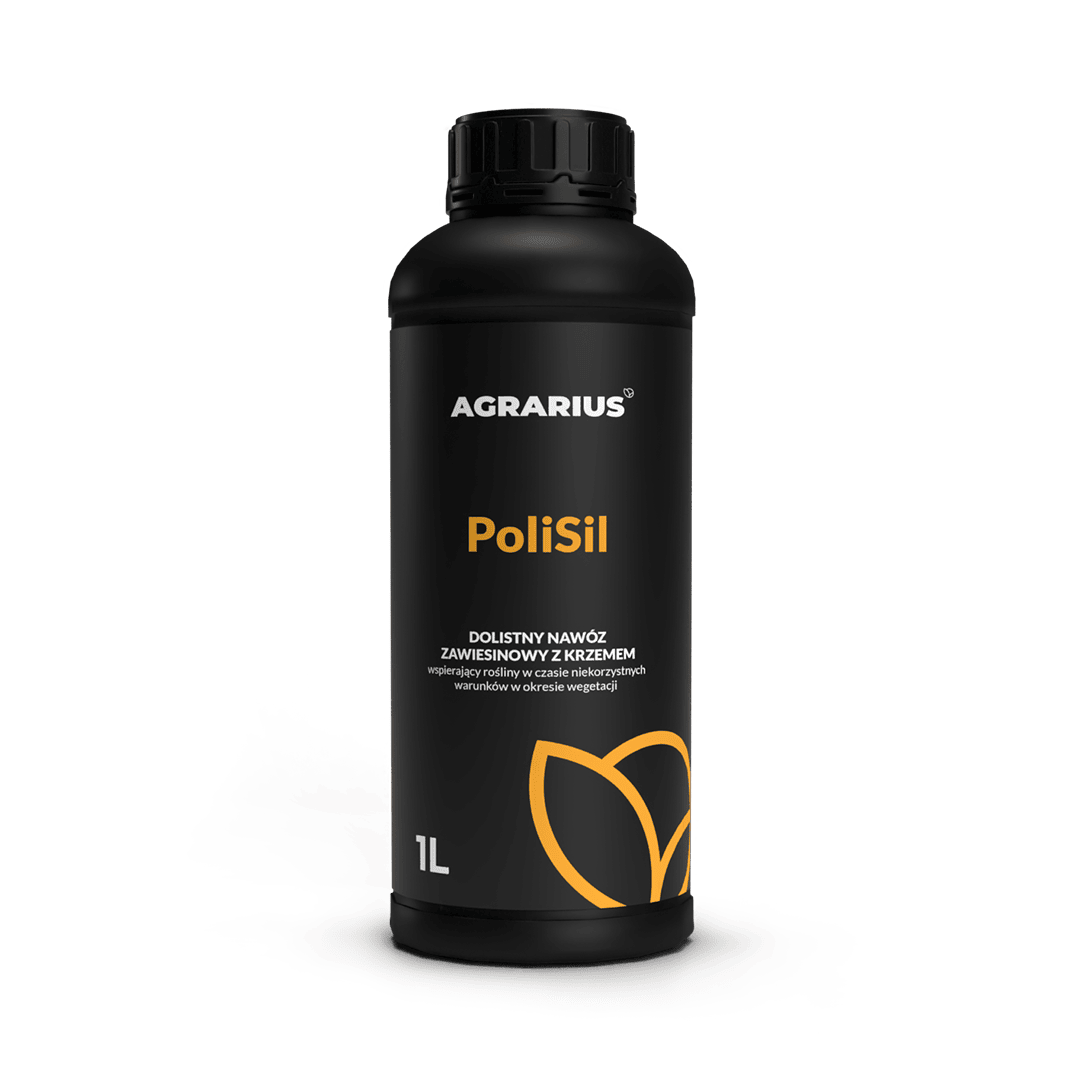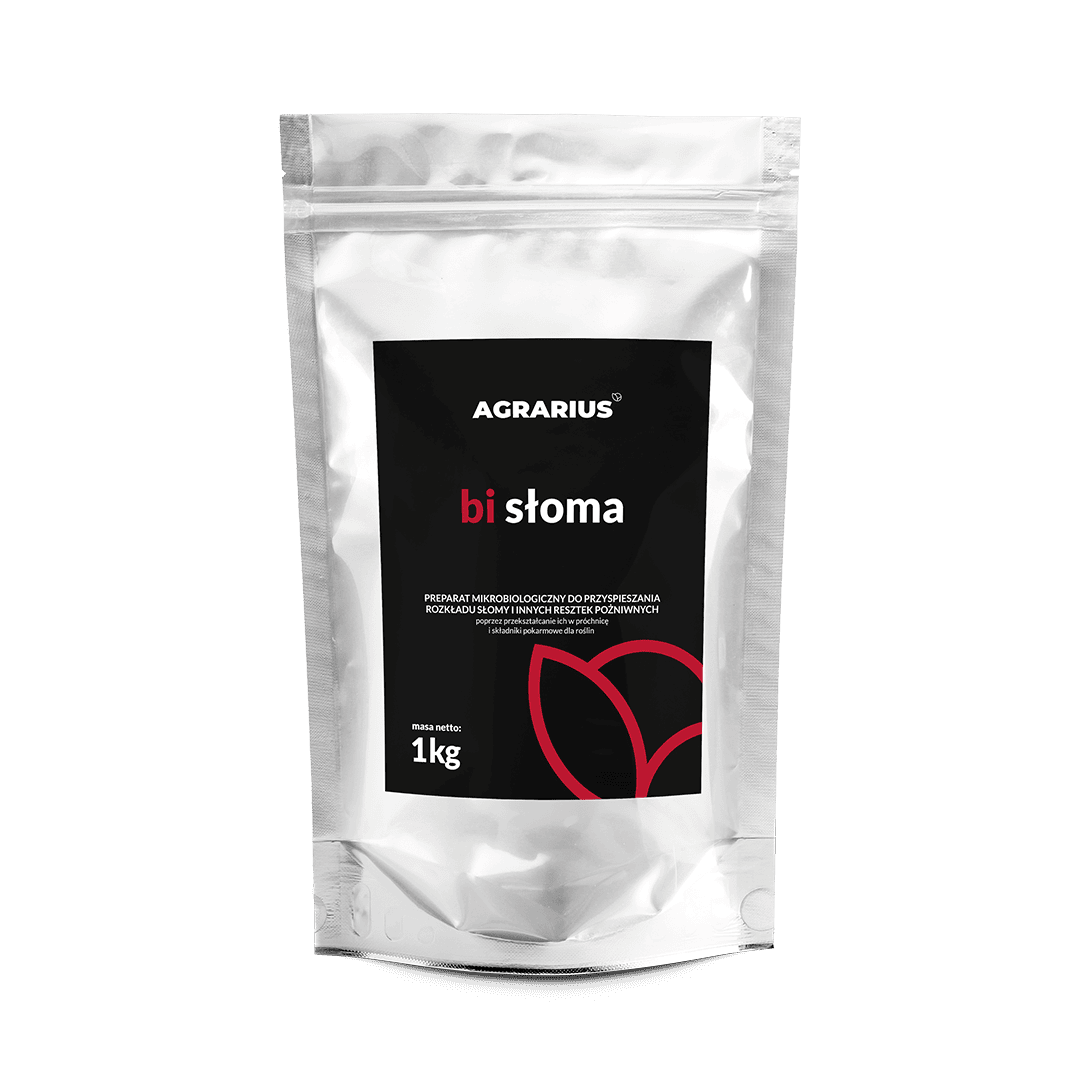bi protect
Plant Health

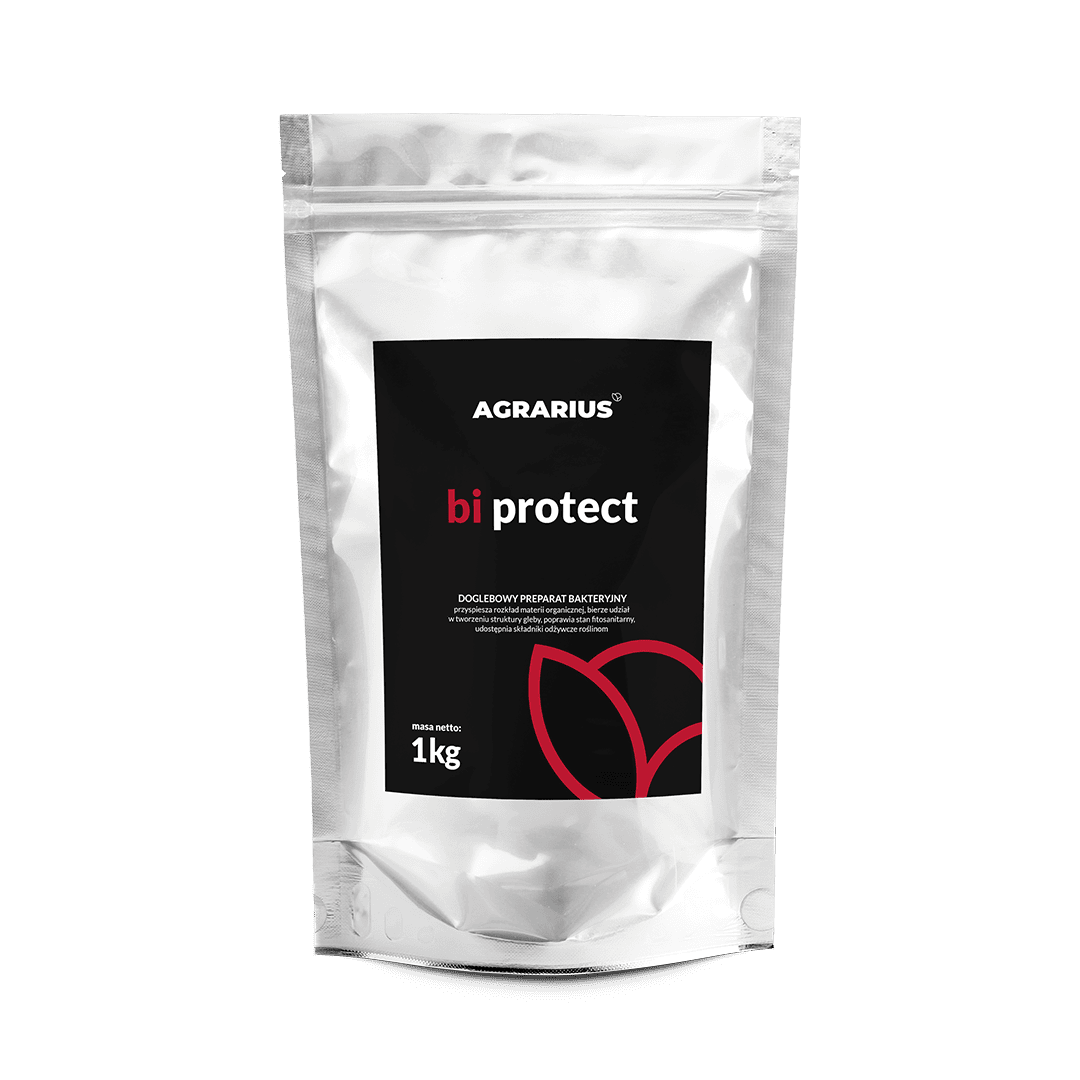
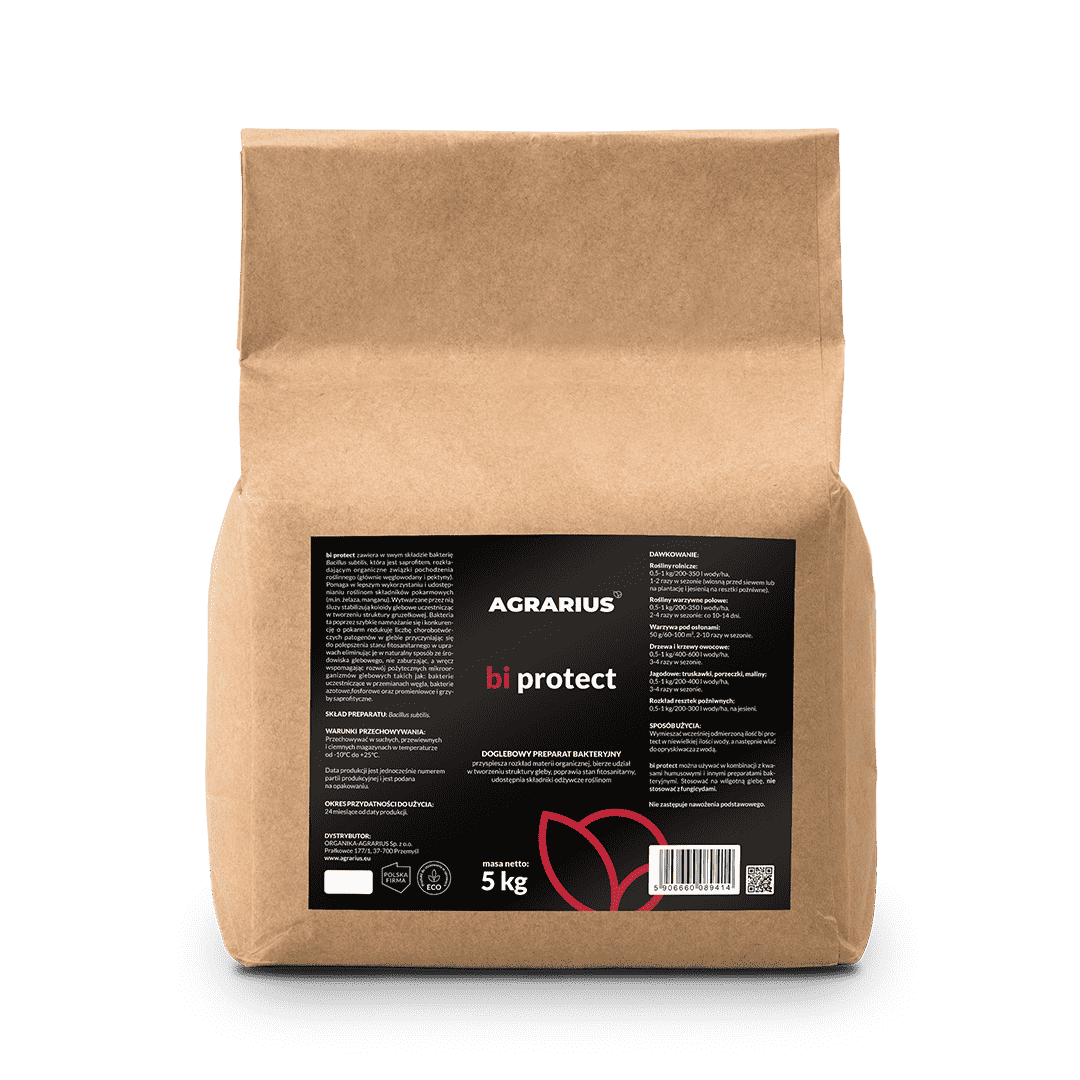
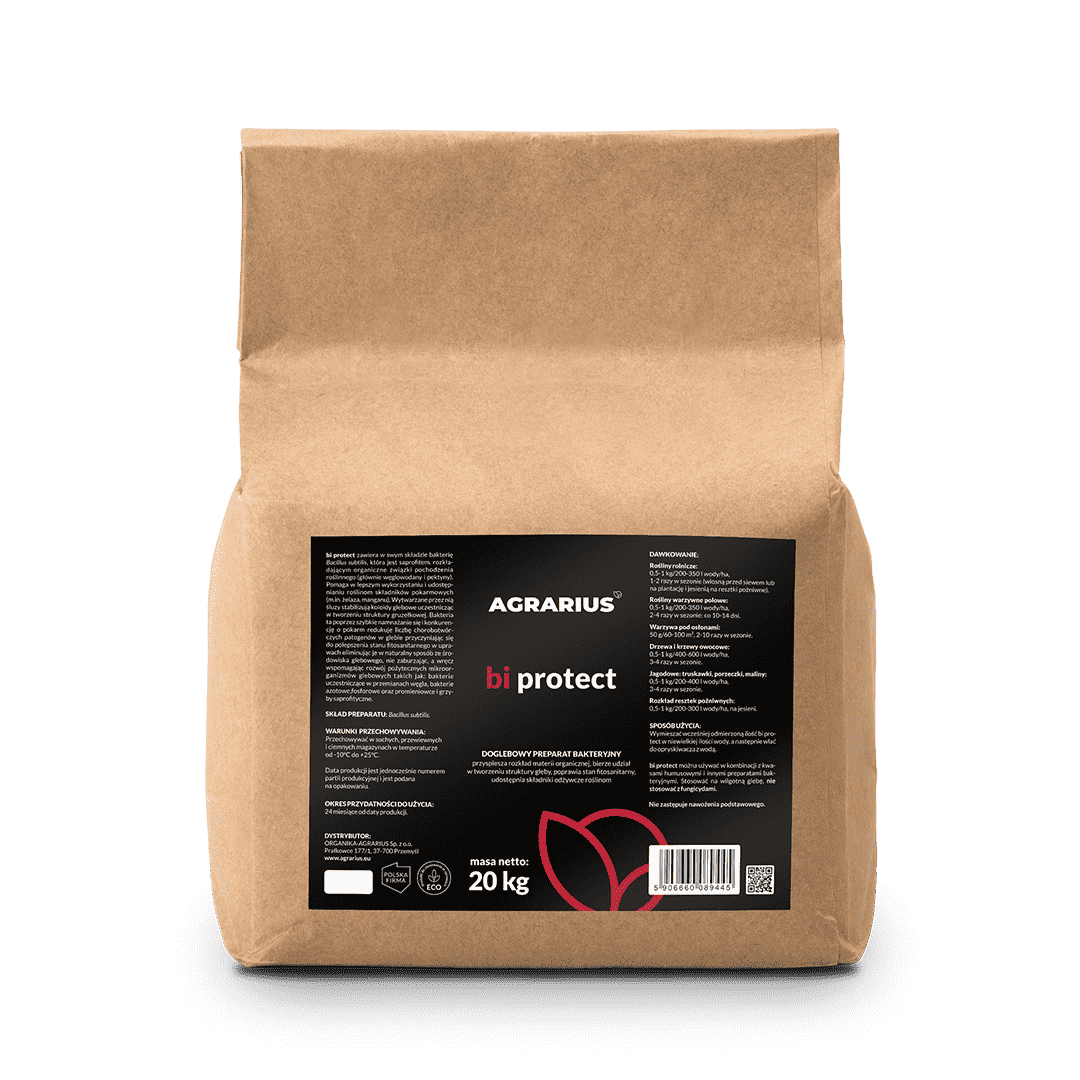
Benefits of use:
Product description:
The bacterium Bacillus subtilis is commonly present in the soil of our climatic zone and is a saprophyte decomposing organic compounds of plant origin – mainly carbohydrates and pectins. Additionally, the bacterium produces peptide antibiotics, such as subtilin and polymyxin B, as well as amino acids, the polysaccharide called "inulin," and enzymes such as amylase and protease. The bacterium secretes siderophores, such as bacillobactin, which have the ability to bind iron ions, forming chelates with various available forms of iron and facilitating their availability to plants.
Proteins present in these bacteria also contain hydrophobin bsIA, which acts by reducing surface tension. This, in turn, increases the wetting of the surface on which beneficial microorganisms develop, leading to improved moisture around the root system and the formation of an additional protective layer. This is particularly important during periods of drought. Additionally, the Bacillus subtilis bacteria contained in bi protect stabilize soil colloids by ensuring the binding of minerals into aggregates.
The last important element of Bacillus subtilis bacteria is the reduction in the number of pathogenic fungi and bacteria in the soil, which promotes improved plant health and increased phytosanitary status of crops. Due to their rapid proliferation, these bacteria compete with other pathogenic microorganisms for food and space, naturally eliminating them from the soil environment. Thus, it not only reduces the presence of harmful pathogens but also promotes the growth of beneficial microorganisms in the soil, supporting its natural environment.
Bacteria of the genus Bacillus subtillis at a concentration of 5x10⁹ CFU per gram of product.
| CROP | DOSAGE | APPLICATION |
|---|---|---|
| Field crops | 0,5-1 kg/200-350 l water/ha | 1-2 times per season (in spring before sowing or planting and in autumn for post-harvest residues) |
| Field vegetables | 0,5-1 kg/200-350 l water/ha | 2-4 times per season: every 10-14 days |
| Protected vegetables | 50 g/60-100 m2 | 2-10 times per season |
| Fruit trees and bushes | 0,5-1 kg/400-600 l water/ha | 3-4 times per season |
| Berry crops: strawberries, currants, raspberries | 0,5-1 kg/200-400 l water/ha | 3-4 times per season |
| Decomposition of post-harvest residues | 0,5-1 kg/200-300 l water/ha | in autumn |
Additional information:
The product should be applied to moist soil, preferably with the addition of humic acids to promote the proliferation of beneficial bacteria. Microbial products should not be used in sunny weather, drought conditions, and should not be mixed with fungicides.
bi protect has been approved by the Institute of Soil Science and Plant Cultivation for use in organic farming under number (SE/27/2020).
